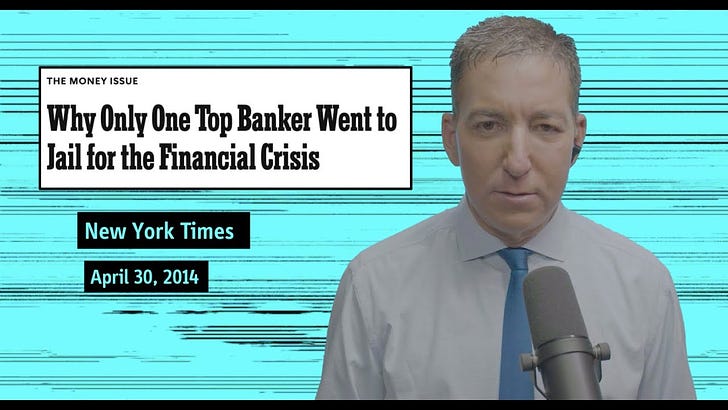Video Transcript: The Epidemic of Prosecutorial Abuse -- Interview with Raj Rajaratnam
I interview Raj Rajaratnam about his important new book, "Uneven Justice," to understand the virtually limitless power of federal prosecutors.
The following is a full transcript of Glenn Greenwald’s Rumble video “The Epidemic of Prosecutorial Abuse -- Interview with Raj Rajaratnam” published on Dec. 30, 2021. Click the previous hyperlink to watch the full program on Rumble, or watch a clip from the video player below.
Glenn Greenwald: Hey, everyone, it's Glenn Greenwald, welcome to a new episode of System Update here on our home on Rumble. And I want to devote this episode to a topic I think has become of much greater importance than ever before, which is the issue of rampant and virtually unlimited power vested in the hands of federal prosecutors and the way in which prosecutorial abuse has become pervasive for all sorts of improper political career asked and other corrupt ends.
I think it has become, if not the single greatest topic, certainly one of the greatest topics of the last five to six years in U.S. politics. And to examine this topic, I'm going to be speaking in just a minute to a guest who has a new book out. He is Raj Rajaratnam, who has a new book, Uneven Justice, in which he first recounts the experience he had with federal prosecutors, in particular one federal prosecutor, a very ambitious and publicity hungry, Preet Bharara, who became somewhat of a social media celebrity during the Trump years but also rode the prosecution of, in this case, to his own level of fame, making it to the cover of Time magazine in 2012, off the back of this case.
And in this book, Raj, who was a very, very successful hedge fund manager who became a billionaire through his hedge fund success, recounts not just what he regards as the injustices of the prosecution of him. That's really secondary. He doesn't have much at stake anymore in trying to prove that he was unjustly persecuted. He served his time, seven years in federal prison, two more years in home arrest, house arrest, and he's now served his time as cases free. He has nothing at stake. His book is really about the ongoing systemic abuses in the criminal justice system and in particular, the virtually unfettered power that federal prosecutors have in prosecuting almost anybody they want for whatever they want in ways that empower them at the expense of justice.
And I realize a hedge fund billionaire is not a very sympathetic figure to complain about inequities in the federal criminal justice system. He himself acknowledges that. But on the other hand, the fact that he is somebody who was confronted and endured the abuses of the system firsthand and has decided to devote his life to this cause of criminal justice reform, he's donating the proceeds of his book to groups both on the right and the left devoted to curbing prosecutorial abuse, makes his perspective particularly insightful and interesting.



